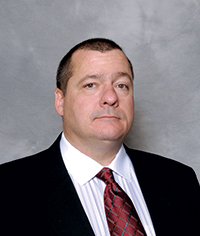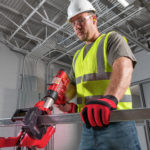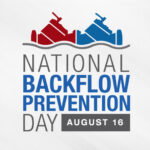I was reading an article today about the current situation with the plumbing board and plumbing licensing in the state of Texas. Unless things are changed there is the possibility that the board will be closed down and the state will no longer require plumbing licenses for individuals installing or maintaining plumbing systems. These include sanitary and water systems that most people understand as things that plumbers do, but it also includes thing like medical gas systems in hospitals, fuel and gas piping, recycled water systems and other vital systems that effect peoples lives and health. In the comment section below the article was the following:
“This is great news. Costs for a plumbing job are going to go down due to the drop in worthless regulations. This will allow more low-income people to fix their minor problems before they become big problems. This will drop the price of new housing and make older housing cheaper to maintain. This will drop the price of rent. Everyone wins except for the plumbers who lose the ability to charge too much for the jobs due to lack of competition.”
The poster signed the post with the name servejesus. I am not at all sure that Jesus was involved in the plumbing industry and my upbringing taught me he was more of a carpenter but the individual using his name seems to have strong opinions on regulations and the plumbing industry. There is no evidence that allowing untrained or unlicensed individuals to do plumbing work will reduce the cost of either minor or major plumbing projects. Current laws allow individuals to do both small and large projects in homes they own and reside in. As for the price of new housing, the cost of the actual construction is only one small factor in the actual cost of housing. The same is true about the way rental fees are calculated. In truth if this is allowed to happen in Texas, no one will win, and everyone will lose. The quality of the plumbing systems in Texas suffer and although minor savings in the direct cost of labor may occur in the short term, in the long run the health and safety of the people of Texas will suffer. Regulation and licensing, if done correctly, is not a bad thing. The way to fix a shortage of plumbers is not to simply allow everyone to call themselves one.
At times regulations can and do become outdated and unnecessary. They can also cause unintended consequences if they are not enforced correctly. Regulations need to be reviewed and kept current, but the present-day push to deregulate everywhere and everything is dangerous and counterproductive. I recently turned sixty. I have been working in the plumbing and water industry since 1975 when I started working summers in my uncle’s plumbing business and attending a three-year plumbing class at the Lackawanna Vo-Tech school in Scranton, Pa. I graduated from high school and became an apprentice plumber with United Association Plumbers Local 90 in Scranton. In forty plus years I have never stopped learning about the plumbing trade. Plumbers do protect the health of the nation and regulations, licensing, and continuing education are vital to the plumbing trade and to protecting the public health.
To many times we hear people in all areas talking about deregulation and how special interests are the ones to blame for the regulation’s themselves. In the Texas situation our poster blames the plumbing industry and licensing for driving up the cost of housing, rents, and any plumbing work being done in the state. He states that licensing of plumbers is causing a lack of competition and that is the problem. In truth there is a boom in construction in the state. There is a shortage of laborers, masons, sheet metal workers, roofers, painters, and others who don’t need a license to work in Texas. There is also a shortage of electricians, carpenters, nurses, and school teachers. Should we relax or eliminate educational or licensing requirements for nurses or school teachers to lower the cost of education or health care? The cost of licensing is not to blame for any of these issues. The regulations are not the problem.
Last year I sat in a public hearing in Philadelphia on a regulation issue. The issue was about changes to the city plumbing code. After my testimony I listened to individuals on every side of the issue. The use of plastic pipe in commercial buildings water and sanitary systems was a hot topic and individuals on both sides were presenting their reasons for or against its use. Some of the people I agreed with, and some I didn’t, but for the most part people presented reasonable and thought out information to make their points including cost, firestopping, expansion, and installation issues. One presentation however left me speechless. The individual presenting supported the use of plastic pipe in any type of application. He spoke not so much about the use of plastic pipe but against the use of copper tubing. His argument was that the use of copper tubing was the reason for the drug problems in the city of Philadelphia. The fact that drug users were stealing scrap copper from buildings created the drug problem and promoting the use of plastic pipe would curb the addiction issue. This was an educated person representing a commercial building owners’ group. We need serious people when we look at important issues. Examples like this make it clear that the regulation process is far from perfect, but regulations are a necessary thing and without them our systems would not function.
The nation itself is polarized today in a way that I have never seen before in my life time. From the federal to the state to the local level it seems that we have given up on fixing issues and instead are happier to see the other side lose even if it makes things worse for everyone. We need regulations and licensing to protect the safety and health of everyone. It protects the workers, the consumers, and everyone in between. What is being done in Texas is wrong and hopefully the Governor and the state assembly will fix the problem before it is to late and do what is in the best interest of the people of Texas. Regulations, inspections, and licensing allow us to have faith in the safety of our buildings, our medical care, the food we eat, and the water we drink. Everyone needs to understand that.
About the Author |
|
 |
Sean is a 40 year member of the United Association Local 524 Scranton Pa. He has worked in all phases of the plumbing and mechanical industry and is a licensed master plumber. Sean is a Past President of the American Society of Sanitary Engineering. Sean is also the member of the ASSE Cross-Connection Control, Technical Committee. Sean is employed by IAPMO as the Vice President of Operations for the IAPMO Backflow Prevention Institute. |






 10 Jun 2019
10 Jun 2019
 Posted by Sean Cleary
Posted by Sean Cleary 














4 Comments
There will be no problem in Texas. If the plumbing board stopped regulating the industry it will be taken over by the Texas Department of Licensing and Regulations which already safeguards, HVACR, towing, bingo, beauty shops and numerous other industries.
As an HVACR contractor in TX and OK, I know that TDLR will do a good job if when they assume the responsibility of overseeing the plumbing industry. No worry!
Please elaborate on how TDLR enforces HVAC licensing requirements. How many field inspectors does TDLR have to regulate HVAC contractors? What does TDLT do to insure HVAC contactors comply with the licensing requirements.
I am looking for documentable facts, not opinions.
As a 33 year member of plumbing trades in general, most of my time was spent in the private sector. I have “cut my teeth” in the field learning this trade. plumbing repairs and new construction need oversight for the installers in the field. We have done such a good job as plumbers, that the general public minimizes the dangers associated with faulty plumbing. We drink the water, bathe, and dispose of waste and don’t think twice of it.
I’ve met, hired and done business with many a person who should never touch plumbing, but do because of the potential profits. Said in a different way, people who are installing plumbing because they can make money, not because they are qualified.
many many professionals require licencing, car mechanics,hair salons, people who do nails even. We want to make sure that the people installing and fixing plumbing are properly certified.
Plumbers touch every habitable and non habitable structure, Car washes–imagine the guy who plumbs the soap dispenser tied into drinking water? Doctors office…the plumber who installs the med gas wrong? or a simple restroom and the plumber doesn’t connect the toilet or urinal correctly?
De-regulation of certification oversight for plumbers will put public health in jeopardy
The issue in Texas was not about deregulation of plumbers. It was about which agency should regulate plumbers. In fact, The Texas Sunset Commission report to the Texas Legislature made a strong case for state regulation. The report did not have one word in it about deregulating plumbers.
Other issues such as direct supervision of apprentices, changing the term Responsible Master Plumber to Plumbing Contractor and eliminating the requirement to have a high school diploma or GED to obtain a license created problems.
If you are interested numerous document concerning the Texas issue are on my website, http://www.trainingtexans.com.